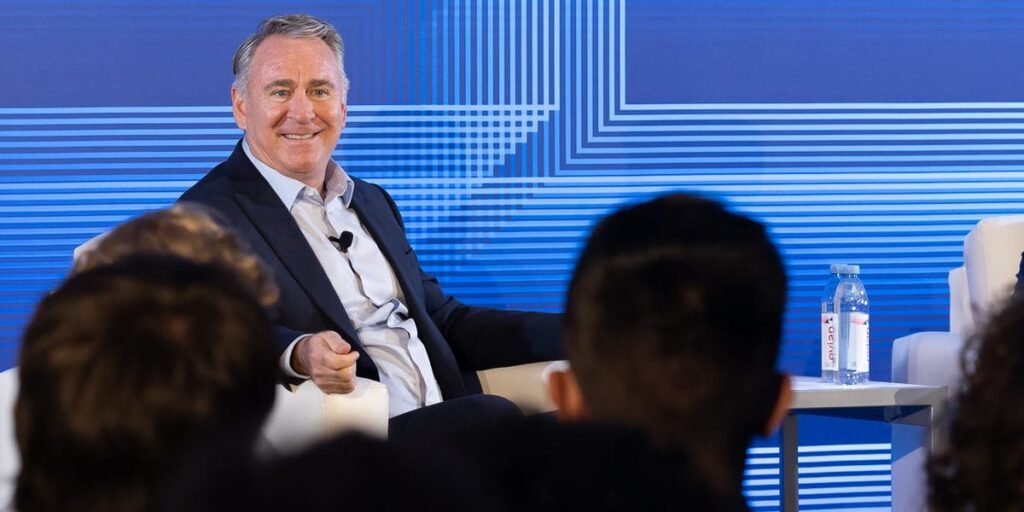Interns of Ken Griffin’s $62 billion hedge fund, Citadel, will travel to Fort Lauderdale on Monday for the start of their 11-week summer program.
The 2025 class is the most exclusive yet — 0.4% of the 108,000 applicants were extended an invitation to the program across both Citadel and its market-making sister firm Citadel Securities.
This year’s class is full of high-achieving brainiacs — about 80% study computer science and mathematics at schools like MIT, Stanford, Cambridge, Princeton, and Harvard. More than a dozen were USA Computing Olympiad Platinum division participants, and dozens more were medalists at the International Olympiad in Math, Physics, and Informatics.
Yet, not everyone will end the summer with a full-time job offer — the ultimate goal of the internship for many students.
As part of our exclusive look into this year’s class, Business Insider spoke to Matt Mitro, the head of campus recruiting for Citadel, about how an intern stand out at such a large hedge fund.
He told BI about a few keys to success that will be drilled into the interns in their first week on the job, including learning to be “commercial” and collaboration.
Mitro’s keys to a successful internship
Mitro said the first week is vital for orienting students and explaining what’s ahead. They will participate in workshops, team-building exercises, and social activities — and hear from senior leaders and external speakers.
They will also learn what it will take to succeed, including the hedge fund’s focus on being “commercial.”
What does that mean? Mitro said it involves interns “understanding how their work applies in markets and also whether an idea they have can be put to use in a timely manner.”
Meaningful and effective collaboration is another “critical feature” of Citadel’s culture and a characteristic the hedge fund is looking for in would-be hires, he said.
“Some students may be used to working by themselves or in very small groups, but here, you rely on your teammates every single day,” said Mitro. “We are constantly working within and across teams, and it’s important to feel comfortable talking with others, relying on them, and asking questions. We’re all available to each other.”
Mitro added that interns should try to be self-aware and reflective of where they can grow. Even at this level, they won’t be perfect.
“It’s important for them to be very aware of their own developmental areas,” Mitro said. “That could be communication or collaboration — how do I work with my colleagues? That commitment to self-awareness and continuous improvement is important.”
Read the full article here


